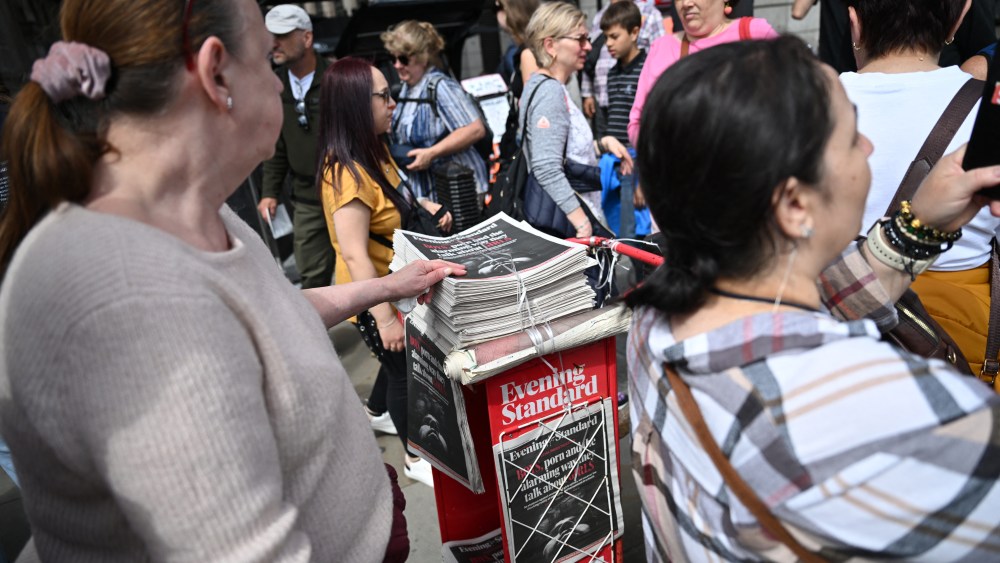LONDON — British newspaper The Evening Standard — a staple in many London commuters’ daily routines — said Wednesday that it plans to axe its loss-making daily print edition.
Instead it plans to launch a weekly edition later in the year to replace the daily publication, “allowing for more in-depth analysis of the issues that matter to Londoners, and serve them in a new and relevant way by celebrating the best London has to offer, from entertainment guides to lifestyle, sports, culture and news and the drumbeat of life in the world’s greatest city,” said Paul Kanareck, the newspaper’s chair, in a memo sent to staff.
ES Magazine, the weekly fashion, culture and lifestyle supplement of the newspaper under the supervision of Ben Cobb, may be retained with reduced frequency, added Kanareck.
Following the rise of home working post-pandemic and the arrival of free Wi-Fi and 5G connection in most central London tube stations by the end of 2024, the paper’s print circulation dropped below 300,000 last year for the first time since it became a free newspaper in 2009, after being purchased for a nominal 1 pound by Russian businessman and former KGB agent Alexander Lebedev.
Kanareck added that the newspaper’s substantial losses — 84.5 million pounds, or $107 million, in the past six years — are not sustainable.
“We plan to consult with our staff and external stakeholders to reshape the business, return to profitability, and secure the long-term future of the number-one news brand in London,” he said.
The newspaper said more than 12 million people access its digital platforms every month, with more than half of them traveling in and out of London.
The top management wants the 197-year-old The Evening Standard to adopt a similar digital transformation its sister publication The Independent, which was acquired by Lebedev in 2010, went through six years ago.
“Although this process may be unsettling, our goal is to replicate our previous success with our sister title, The Independent, which has seen enduring growth in readership and commercial success following its own strategic transition in 2016,” Kanareck said.
He added that a “new commercial approach would reinforce the relationship between our 24/7 digital platforms and our weekly publication.”
“This new combination would place more emphasis on delivering our world-class content to the broadest readership possible, while collaborating with advertisers to reach this audience in the most accessible, creative and relevant manner.”
It’s not clear how many jobs will be impacted from journalists and designers working for the print edition to distributors who hand out the newspaper across London daily.
A separate email from the Evening Standard HR team told staff that “at this stage, [we] do not yet know the exact impact of the changes” and said the business is pre-emptively seeking “to put in place a sound consultation structure for when further details are announced.”



